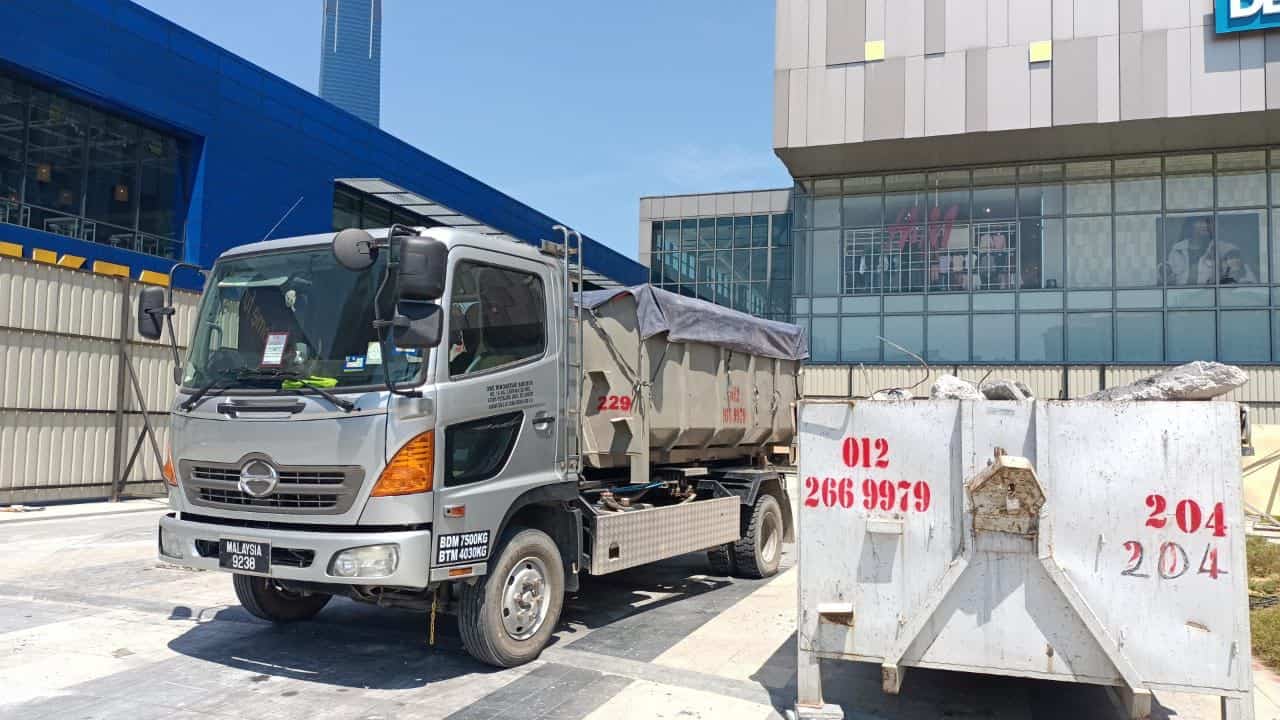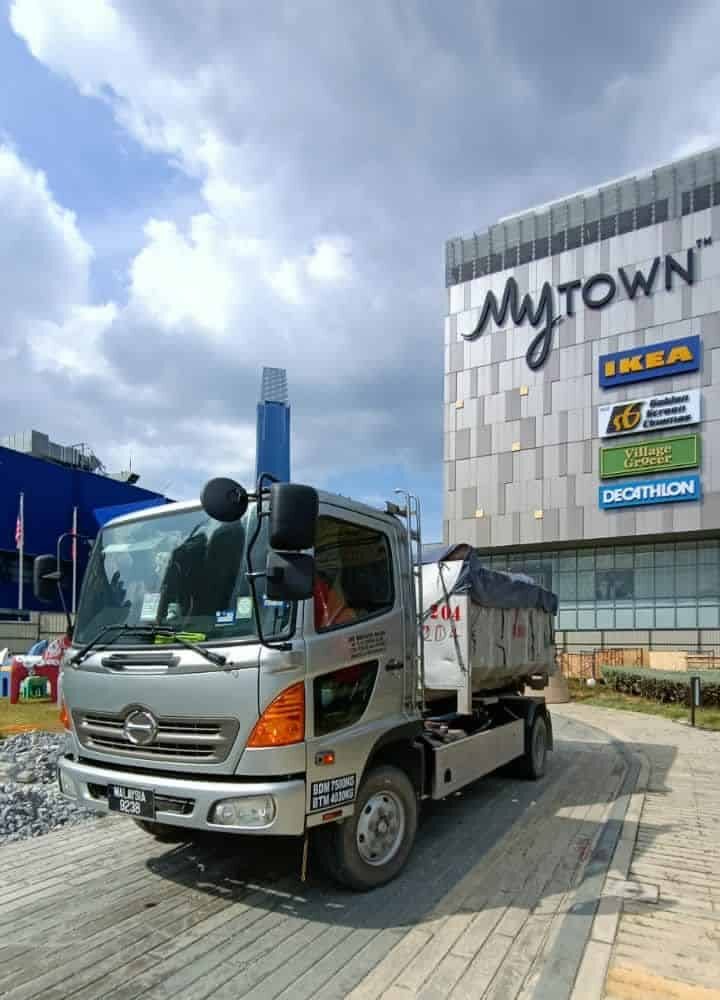RORO BIN RENTAL
Find The Right Size For Your Project

Small Roro Bin
Dimensions: 12′ (L) X 6′ (W) X 2.5′ (H)
Best Use: Heavy construction and demolition waste like concrete and soil.

Large Roro Bin
Dimensions: 12′ (L) X 6′ (W) X 4′ (H)
Best Use: Light-weight construction, industrial, commercial waste, furniture, household bulky waste, trees and etc.

Domestic Roro Bin
Dimensions: 12′ (L) X 6′ (W) X 4′ (H) with roof
Best Use: Domestic food waste (Organic waste).

Extra Giant Roro Bin
Dimensions: 16′ (L) X 8′ (W) X 6′ (H)
Best Use: Light-weight construction, industrial, commercial waste, furniture, household bulky waste, trees and etc.

Giant Roro Bin
Dimensions: 14′ (L) X 7′ (W) X 5.5′ (H)
Best Use: Light-weight construction, industrial, commercial waste, furniture, household bulky waste, trees and etc.
WHAT MAKES US DIFFERENT ?

Value Price

Express Service

Licensed Under Local Authorities

Quick Scheduling
TESTIMONIALS
OUR CLIENTS







PROJECT REFERENCE









Building Waste Management Service
Introduction to Building Waste Management Services
Building projects, whether new constructions or demolitions, produce a substantial amount of waste. This waste includes everything from concrete and bricks to hazardous materials, posing environmental risks and contributing to landfill overflow. Managing this waste properly isn’t just a regulatory requirement—it’s also essential for promoting sustainable practices and reducing the environmental footprint of construction. Building waste management services play a crucial role in handling these materials responsibly.
Understanding Building Waste and Its Impact
To understand why building waste management services are important, let’s first look at what building waste entails and how it affects both our environment and health.
Types of Building Waste
Different kinds of waste come from construction, renovation, and demolition projects. These can be categorized into two main types:
- Hazardous Building Waste
Hazardous waste includes items like asbestos, lead-based paints, and certain chemicals. Improper disposal of these can lead to soil contamination and air pollution, posing serious health risks to both humans and wildlife. - Non-Hazardous Building Waste
Non-hazardous waste includes materials such as concrete, wood, and bricks. Though less harmful, these materials still consume valuable landfill space if not managed properly.
Environmental and Health Impacts of Building Waste
Without proper waste management, building waste can pollute water and soil, harm local ecosystems, and release toxic gases into the atmosphere. This impacts the quality of air, water, and soil around construction sites, with potential long-term health effects on nearby communities.
Why Building Waste Management Services Are Essential
Building waste management services aren’t just about meeting legal requirements. They help reduce environmental impact, promote resource efficiency, and align with sustainable construction practices.
Compliance with Regulations and Laws
Governments worldwide have implemented regulations to control construction waste disposal. Non-compliance can result in heavy fines and legal issues, making professional waste management services a smart choice for construction companies.
Reducing Environmental Impact
Using building waste management services helps minimize the waste that ends up in landfills, which directly contributes to reducing environmental pollution and preserving natural resources.
Promoting Sustainable Construction
Sustainable construction focuses on resource conservation and eco-friendly practices. Waste management services play a pivotal role by reusing materials, recycling where possible, and ensuring minimal waste generation.
Key Components of Effective Building Waste Management
To make waste management work, various strategies are implemented across construction projects.
Waste Reduction Strategies
- Design for Minimal Waste
Smart design choices can help reduce waste from the start. This includes planning structures that require fewer materials or use standardized sizes to reduce off-cuts. - Efficient Material Usage
Choosing sustainable materials and using them efficiently minimizes wastage, lowering the project’s overall environmental footprint.
Waste Segregation and Sorting
Sorting waste materials at the construction site allows easier recycling and disposal, reducing the contamination of recyclable materials and making the recycling process more efficient.
Recycling and Reusing Building Waste
Recycling materials like metals, concrete, and glass is one of the most effective ways to manage construction waste. Reuse initiatives can also save costs by giving old materials a new life in new projects.
Types of Building Waste Management Services
Professional services offer various waste management solutions tailored to construction needs.
On-Site Waste Management Services
On-site services involve waste collection, sorting, and storage at the construction site itself. This minimizes waste transportation costs and can be more convenient for larger projects.
Off-Site Waste Disposal Solutions
In cases where on-site management isn’t feasible, waste can be transported to an off-site facility for proper disposal or recycling.
Recycling and Salvaging Services
Specialized services focus on recycling and salvaging valuable materials from construction waste, maximizing reuse and minimizing disposal in landfills.
The Process of Building Waste Management
A successful waste management process includes several stages, ensuring that waste is handled safely and responsibly.
Waste Collection and Transport
Collection teams gather waste materials from the site, following strict protocols to handle hazardous and non-hazardous waste safely.
Waste Sorting and Processing
Once collected, waste is sorted into categories like metal, wood, concrete, and hazardous materials. Proper sorting enables easier recycling and ensures hazardous materials are handled appropriately.
Recycling and Disposal Techniques
Some materials are sent for recycling, while others, especially hazardous waste, may require specialized disposal techniques to prevent environmental harm.
Benefits of Professional Building Waste Management Services
Hiring professional waste management services has significant advantages for construction projects.
Cost Savings in Construction Projects
By recycling and reusing materials, companies can reduce the cost of raw materials and waste disposal fees, leading to more cost-effective projects.
Reduced Environmental Footprint
Effective waste management limits the amount of waste in landfills, contributing to environmental conservation and reducing the construction sector’s impact on the planet.
Enhanced Safety and Health Standards
Proper disposal of hazardous materials keeps construction sites safe and reduces health risks to workers and nearby communities.
Choosing the Right Building Waste Management Service Provider
Selecting a qualified waste management service provider ensures that waste is handled professionally, legally, and safely.
Factors to Consider When Hiring a Service
- H4: Range of Services Offered
A diverse range of services offers flexibility, allowing you to tailor waste management to specific project needs. - H4: Compliance with Regulations
Verify that the provider adheres to relevant waste disposal regulations and maintains safety standards.
The Future of Building Waste Management
With the rise of eco-conscious construction practices, the future of building waste management is leaning toward even more innovative and sustainable approaches.
Innovations in Waste Processing and Recycling
New technologies in recycling and waste processing, like advanced sorting systems, improve the efficiency and effectiveness of waste management.
Emerging Trends in Sustainable Construction Waste Management
Trends such as “zero-waste” construction and circular economy principles are gaining popularity, making waste management a priority in modern building projects.
Building waste management services are essential for any construction project, helping companies comply with regulations, reduce costs, and protect the environment. By adopting responsible waste management practices, the construction industry can significantly reduce its environmental impact, create safer work environments, and contribute to a sustainable future.


